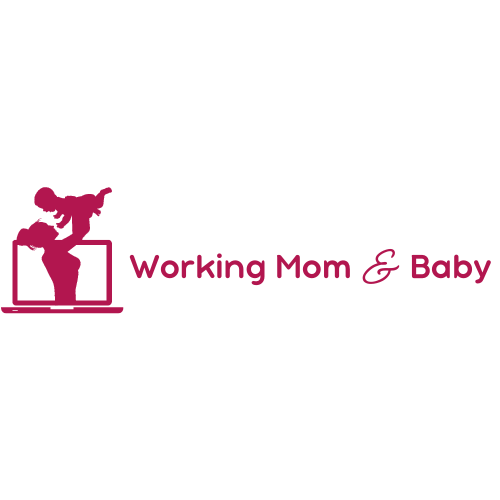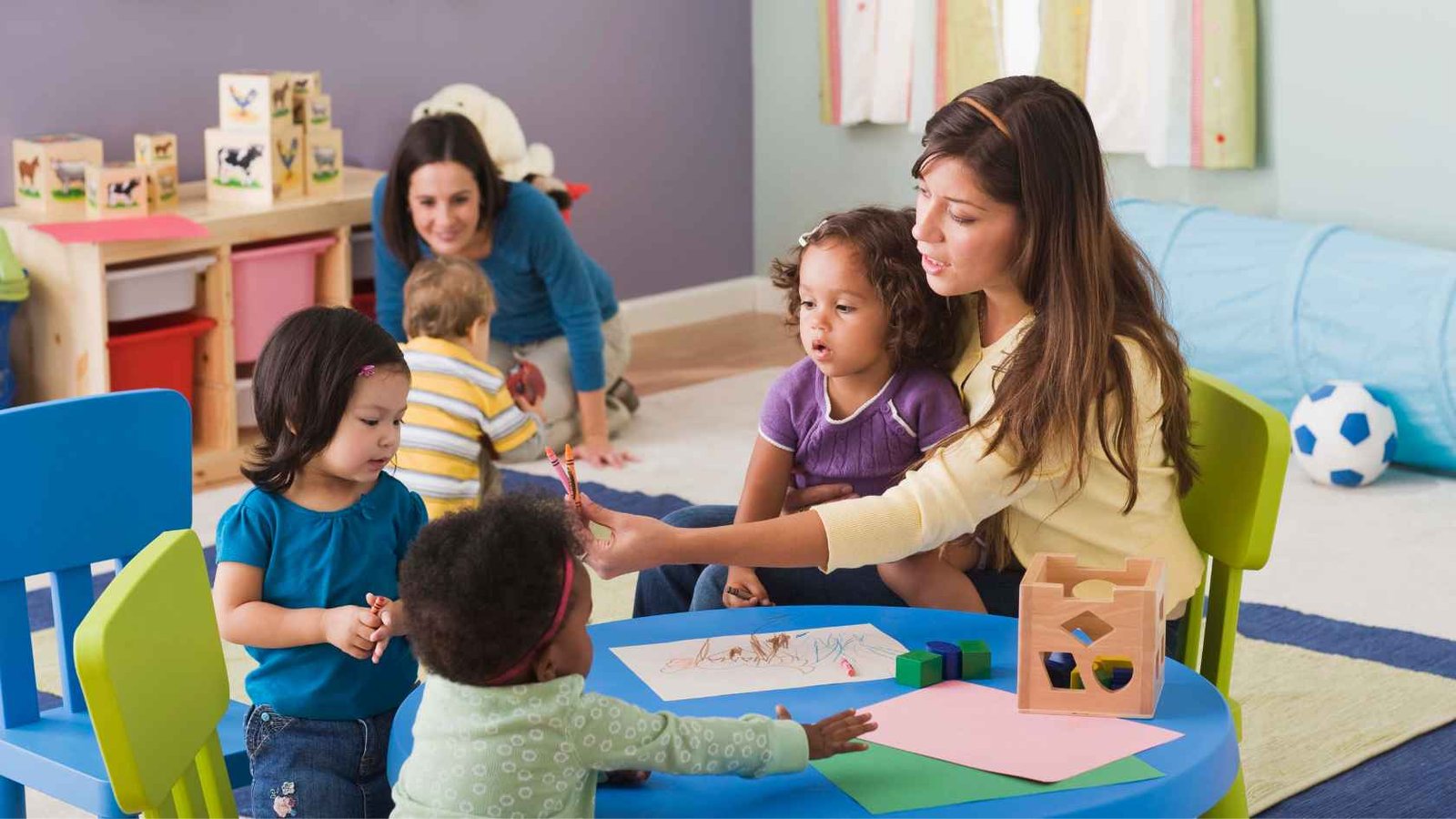Finding the right daycare can feel overwhelming. It isn’t just about finding a place for your child to spend their day. It’s about finding a space where your child feels safe, supported, and excited to learn each day.
For working parents, a good daycare can make all the difference. It can provide peace of mind and a nurturing environment for their child’s growth.
But what exactly defines a “good” daycare?
And how to find a good day care that meets your family’s needs and your child’s development?
Related Read: Am I Affecting My Child’s Development By Working Full-Time?—Here’s The Answer
In this guide, we’ll cover how to find a good daycare, the essential qualities to look for, and what to avoid.
Let’s dive deeper to help you find the best daycare for your family.
What Defines a High-Quality Daycare?
A quality daycare goes beyond basic care. It provides a safe place for children to explore and develop key skills.
Here are some essential characteristics to look for:
1. Qualified and Caring Staff
The staff should have training in early childhood education. They should also have experience working with young children.
Look for a team that is warm, engaged, and responsive to children’s needs.
2. Low Child-to-Staff Ratio
Smaller ratios let caregivers give each child more attention. It’s essential for young children.
A good rule of thumb is a ratio of one adult for every three to four infants and one adult for every four to six toddlers.
3. Age-Appropriate Curriculum
A good daycare will have a structured curriculum. It should support early learning, creativity, and social skills.
Look for a balance of activities, including hands-on learning, storytime, outdoor play, and group interactions.
4. Good Safety and Cleanliness
The facility should be clean, safe, and childproof. It should have clear safety protocols and emergency procedures.
Check that play areas are well-maintained and toys are sanitized. Also, ensure there are secure entry points.
5. Clear Parent Communication
Quality daycare centers prioritize communication with parents. It includes providing regular updates on your child’s activities, development, and milestones.
Many centers now use apps to keep parents informed and connected throughout the day.
Related Article: Good Age for Daycare—How to Know When Your Child is Ready
Choosing the Right Location for Your Daycare

Location plays an important role in your daycare decision. It directly impacts convenience and your daily routine.
Here are some location-related factors to consider:
Close to Home or Work?
Consider whether you want the daycare to be near your home or workplace.
A daycare close to home can make morning and evening routines smoother.
A daycare near work may let you visit during the day or respond quickly in case of an emergency.
Safety and Accessibility
Look at the neighborhood’s safety and accessibility.
Is there ample parking for drop-offs and pick-ups?
Is it in a safe area with minimal traffic?
These factors can make daily routines much easier.
Transportation Options
If you use public transportation, make sure the daycare is accessible.
Some parents also prefer centers that offer transportation services. It can be helpful for work schedules that don’t align with daycare hours.
Related Reading: How Daycare Can Boost Your Child’s Development—Every Parent Should Know This!
How to Find Good Day Care Options in Your Area
Finding a good daycare starts with knowing where to look and asking the right questions.
Here are some tips to help you in your search:
Ask for Recommendations
Start by asking friends, family, or local parent groups for daycare recommendations.
Word of mouth can often point you toward trusted options that may not appear on a quick online search.
Research Online
Many websites offer lists of local daycares and include parent reviews.
Sites like Care.com, Yelp, and parenting forums offer insights into nearby centers. They highlight the pros and cons from parents’ perspectives.
Visit Multiple Centers
Once you have a list of potential centers, visit them to see the environments firsthand.
Observing the classrooms, meeting the staff, and seeing how they interact with children. It will give you a better sense of the quality.
Check Licensing and Accreditation
Look for centers that are licensed by the state and accredited by organizations like the National Association for the Education of Young Children (NAEYC).
Accreditation is a sign that the center meets high standards in education and care.
Prepare Key Questions
Asking questions is crucial to understanding if the daycare aligns with your needs.
Ask about the daycare’s discipline, daily routines, and safety protocols. Also, check their policies on illness and emergency protocols.
Look for Community Resources
Many cities and communities have childcare resources and referral agencies. They can provide a list of licensed daycare centers in your area.
This can be especially helpful for finding high-quality daycare options within specific neighborhoods.
Related Reading: Secrets to Finding a Good Daycare—What Parents Should Look For
Red Flags to Watch Out For in Daycare Centers

When visiting daycares, watch for red flags. They may mean the center isn’t a good fit for your family.
High Staff Turnover
Frequent staff changes can disrupt children’s sense of stability. It’s crucial for a nurturing environment.
Lack of Transparency
If the center is hesitant to answer questions or allow you to observe classrooms, it could be a sign of poor management.
Dirty or Unsafe Conditions
Cleanliness and safety are non-negotiable. If the daycare appears unkempt or you notice safety hazards, it’s a good idea to keep looking.
Disengaged Staff
Quality care requires active, engaged caregivers who are attentive to the children.
Staff members who seem stressed, disinterested, or unresponsive are a warning sign.
Related Reading: 5 Best Child Care Solutions for Busy Parents—And How to Choose
Essential Checklist for Choosing a Daycare
When you evaluate daycare options, use this quick checklist. It will help you ensure the center meets your family’s needs.
- Licensed and accredited with a low child-to-staff ratio.
- Clean, safe, and childproofed facility with clear emergency protocols.
- Experienced, nurturing, and engaging staff.
- Age-appropriate curriculum with a balanced schedule of learning and play.
- Strong communication with parents, with daily updates or reports.
- Convenient and safe location, with accessible parking or transportation options.
Related Reading: Searching for a Good Daycare? Here’s How to Spot the Best
Finding the Right Daycare, One Step at a Time
Choosing a daycare is a big decision. But breaking it down into manageable steps will make it easier.
By focusing on key qualities like safety, curriculum, and communication, you can find the best one. The place where your child will thrive and where you’ll feel confident leaving them each day.
Remember, the best daycare isn’t just about ticking boxes. It’s about finding a fit that feels right for your family.
Have you been searching for daycare options recently? I’d love to hear what factors are most important to you! Share your thoughts in the comments below.
And don’t forget to check out more articles on workingmomandbaby.com for helpful tips on balancing work and parenting.

